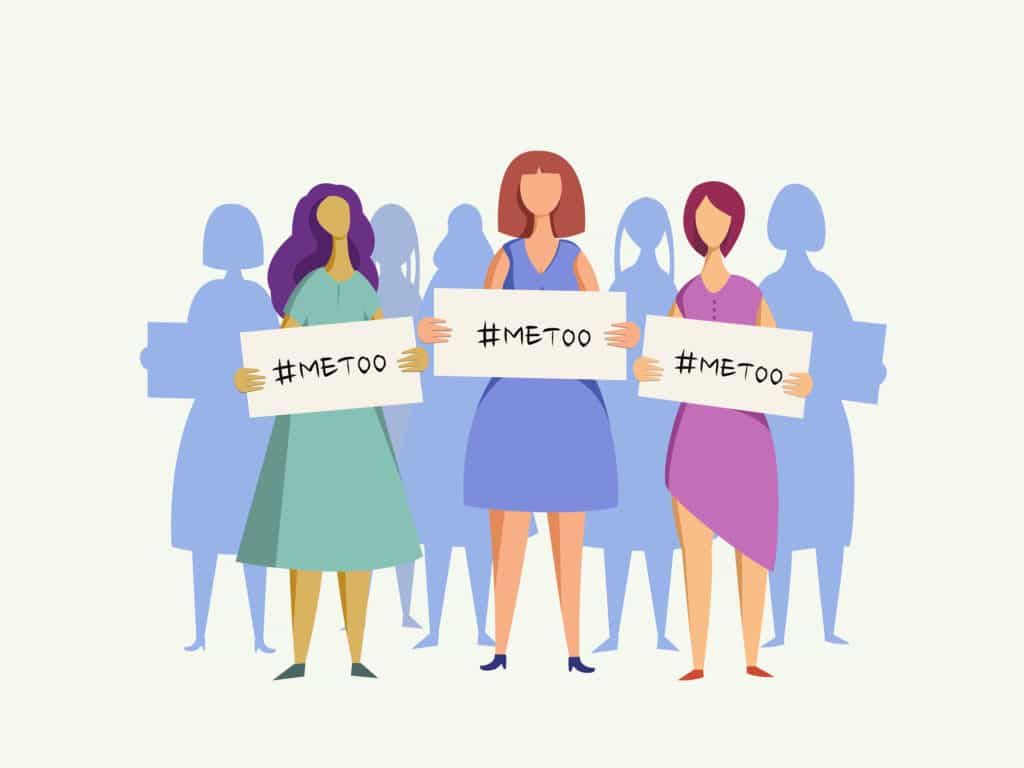Appropriate Workplace Conversations in a #Metoo World

The #MeToo movement has been a long time coming. Back in the early 1990s, some people thought that Anita Hill’s accusations against Clarence Thomas during his Supreme Court confirmation hearings would usher in significant change in preventing workplace harassment. While the accusations and hearings resulted in widespread media coverage, extensive commentary, and increased anti-harassment training in the workplace, they unfortunately did not produce the anticipated and needed change. The same hope and subsequent disappointment happened with respect to sexual misconduct allegations against various political leaders in the late 1990s. The #MeToo movement, however, is a watershed moment. One only has to look at how many powerful executives and other individuals in significant leadership roles have lost—and are continuing to lose—their positions to appreciate that the #MeToo movement has had, and will continue to have, a long-lasting impact.
The #MeToo movement is helping to underscore the importance of people treating one another with respect and dignity. This is critical. The movement is also changing the kinds of conversations that people can and should have on a day-to-day basis with one another in the workplace. In most respects, this is a positive development. Yet, some people in corporate America are lamenting that the movement has so sterilized the working environment that we have to walk on eggshells with respect to our workplace conversations. They say that this is especially so when it comes to having a sense of humor.
For example, in the late 1970s and early 1980s, one of the jokes heard in many offices, and especially during collective bargaining negotiations, was the one about the very first labor contract negotiation in the history of the world—you know, the one between God and Moses: God was obviously management, and Moses represented the people. It was a blistering, hard-fought negotiation. God used all of the management tricks in the book—thunder, lightning, and burning bushes. Moses threatened work slowdowns and even to take the people out on strike if he did not get his way. Finally, after 40 long days and nights, Moses descended from Mt. Sinai. He was parched and exhausted, and he was carrying two tablets with him. He eventually gathered everyone before him, and he said,
“People, I have good news, and I have bad news.
The good news: I got him down to ten.
The bad news: Adultery is still in there; but it’s not retroactive.”
Years ago, many people considered that joke amusing and harmless. Today, several people might also laugh at the joke, however, one should think twice before telling it in the workplace. People’s attitudes have changed. Some people might take offense at the story. Some might feel that it is religiously harassing because it ridicules God, Moses, and the Ten Commandments. Others might feel that it is sexually harassing because it seems to revere adultery and casual sex.
Telling the foregoing joke alone would not constitute unlawful harassment because the conduct would not be so severe or pervasive to alter the conditions of employment and create an objectively hostile or abusive working environment. Indeed, employers generally are not held liable for isolated off-color comments, incidents, teasing, and other banter. But why go there? Why make colleagues in the workplace feel uncomfortable? Why run the risk that the joke, considered with other, more severe conduct that has permeated the workplace, might be part of an unnecessary and expensive lawsuit?
Of course, this is not to say that we should abandon our senses of humor. On the contrary, we shouldn’t. We, however, should think about the impact that our stories, jokes, and comments might have on others before sharing them.
When I have made this point at workshops and trainings, someone grumbles that banning jokes at work is taking the joy out of the workplace. I am not suggesting, however, that we should have antiseptic working environments. Places of employment can and should still be places of enjoyment where employees can share amusing stories and jokes. They just need to be appropriate.
Sometimes a workshop attendee will say something like, “The best jokes are dirty jokes. You’re taking away our fun.” I reinforce that I am not saying that we should not have fun or that we cannot tell jokes. Indeed, I maintain that, even though the U.S. Congress has hundreds of politicians, there is nothing in the Constitution or the law that prohibits telling jokes about them. Politicians are fair game, and there is plenty of fodder. Here is but one example:
One day back in the early 1960s, President Kennedy, Vice President Johnson, and the first Mayor Daley were on a boat together in Chicago way out on Lake Michigan. Suddenly, a terrible storm erupted, and a powerful lightning bolt punched a huge hole in the boat. It was clear that the boat could only hold one of the three politicians. Two would have to jump overboard, and they probably would perish.
President Kennedy said, “I obviously should be the one to survive. I’m the President of the United States and the most important person in the world. I also have great social programs that I must see enacted.”
Vice President Johnson snarled, “That’s ridiculous. If it weren’t for me, Mr. President, you wouldn’t have carried Texas. Besides, I’m the one who engineers your programs through Congress. I should get to stay on the boat.”
Mayor Daley interjected, “Gentlemen, gentlemen! I’m shocked at what I’m hearing. We are statesmen; we are members of the Democratic Party. We shouldn’t be bickering about this issue. We should hold an election.”
And they did. Daley won 7-2.
Moreover, there are many other amusing jokes and stories about other groups and topics that do not run the risk of offending someone based on factors such as sex, race, religion, age, ability, or other protected categories.
The bottom line is that we need to be appropriate. We need to be careful that our statements and actions are neither misconstrued nor offensive. This includes being more judicious in our day-to-day conversations and the stories and jokes we share in the workplace. While discretion is the better part of valor, we need not go overboard. Lightheartedness and wit are critical aspects of our humanity and can make the work environment enjoyable and even productive. To abandon those attributes would be a shame.
The foregoing material is not a legal opinion and does not constitute a substitute for legal advice. Consult legal counsel concerning your specific situation or any legal questions you may have.
Tags
Related Articles
Celebrating Hispanic Heritage Month with Association Latinos
How to celebrate Hispanic Heritage Month within the association community and Chicago!
Tips for Creating a Welcoming Meeting Environment
Creating a truly inclusive annual meeting means going beyond ADA compliance—discover how one association builds...
POV: My First Time at Women’s Executive Forum™ Was Inspiring and Invigorating
A first-time attendee of the Women’s Executive Forum 2025 reflects on the event’s inspiring energy,...




